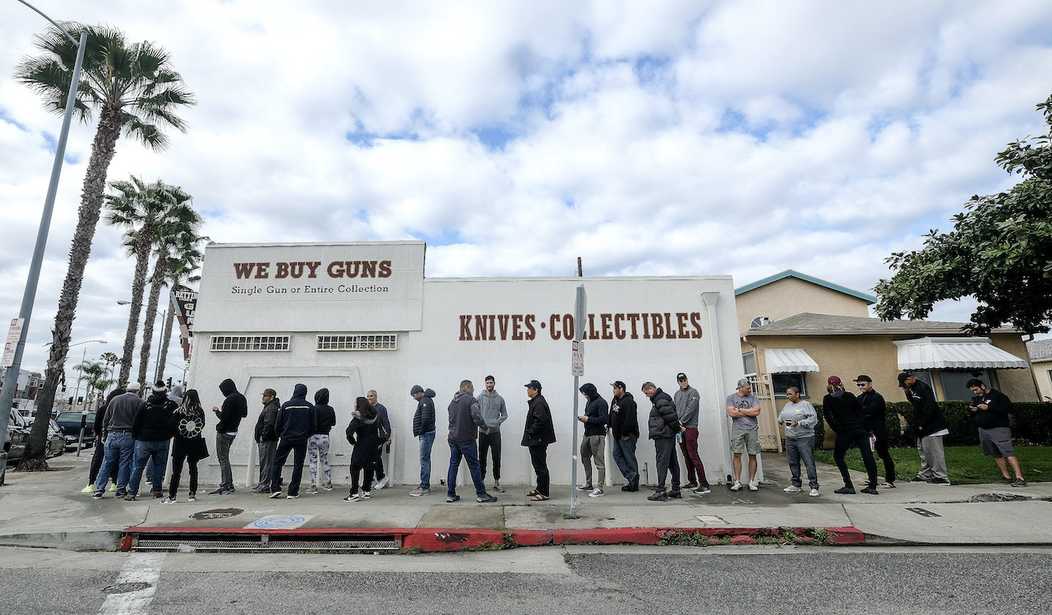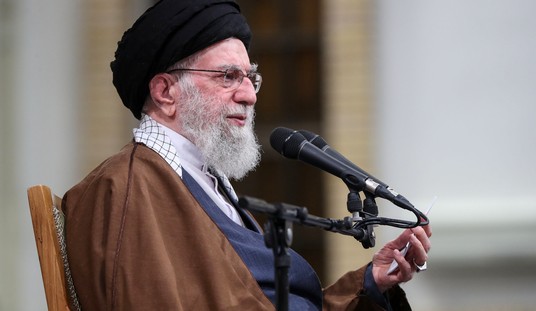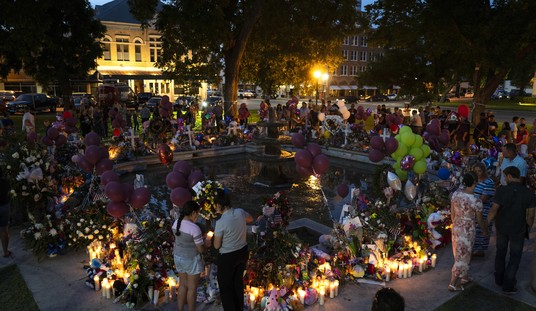California’s a target-rich environment for Second Amendment organizations seeking to undo anti-gun infringements thanks to its nearly endless number of statutes already in place and lawmakers in Sacramento intent on placing further curbs on the right to keep and bear arms. We’re currently waiting to hear U.S. District Judge Roger Benitez’s decision in four cases dealing with everything from the state’s ban on “assault weapons” to its bizarre prohibition on online and out-of-state ammunition sales to California residents, while other lawsuits are taking on the state’s one-gun-a-month law, “ghost gun” ban, and the state’s handgun roster.
Now we can add a challenge to California’s 10-day waiting period on all firearm transfers, thanks to a new lawsuit filed by a coalition of Second Amendment groups including the Firearms Policy Coalition, Second Amendment Foundation, California Gun Rights Foundation, and the San Diego County Gun Owners PAC, along with several individual plaintiffs.
The case, known as Richards v. Bonta, centers around California’s requirement that all gun sales must involve a ten-day waiting period, even if the background check is completed within hours or minutes. As the complaint notes, the law “prevents law-abiding people from taking possession of lawfully acquired firearms for immediate self-defense and other lawful purposes—even after Defendants know the individual is eligible to exercise their fundamental, constitutionally protected right to keep and bear arms”; in essence turning the fundamental right to armed self-defense into a second-class right.
As explained in Bruen, the government bears the burden of “affirmatively prov[ing] that its firearm regulation is part of the historical tradition that delimits the outer bounds of the right to keep and bear arms.” 142 S.Ct. at 2127. Here, Defendants cannot possibly carry that burden. No waiting period or any analogous laws existed in the constitutionally relevant period of history. Rather, no form of a waiting period law was enacted for any jurisdiction until 1923, well beyond the relevant time period the Supreme Court permits to be considered—after all, the law held unconstitutional in Bruen was enacted in 1911.
Adding insult to injury, Defendants broadly discriminate against the average person by allowing nearly two dozen categories of favored individuals to take possession of firearms and ammunition without being subject to those same delays and burdens. This case is thus also brought on the premise that Defendants’ enforcement of California law violates the Equal Protection Clause by discriminating among its citizens in their exercise of the fundamental right to keep and bear arms.
Plaintiffs therefore bring this litigation to vindicate their rights on a simple premise: The State may not prevent a law-abiding person from taking possession of an arm after it confirms, using readily available electronic databases, that the person is not prohibited from possessing firearms.
Put differently, if the Defendants query federal and state databases and return no records showing that an applicant is prohibited from possessing arms, and have no other evidence that they are disqualified from exercising their rights, they must allow a dealer to transfer possession of the arm without further delay.
As plaintiffs’ attorney Bradley Bembrook notes in the initial complaint, the Ninth Circuit has previously upheld California’s waiting period law, but did so using the two-step, tiered scrutiny approach soundly rejected by the Supreme Court in NYSPRA v. Bruen. And under the text, history, and tradition approach spelled out by SCOTUS in Bruen, it’s up to the state to demonstrate that its waiting period is historically analogous to other longstanding statutes. That would be tough to do with waiting periods in general, given that they’re a fairly modern invention, but as the complaint notes, California’s law denies the average citizen the right to take possession of their firearm within ten days while exempting certain protected classes including the entertainment industry.
To name just a few, destructive device collectors, movie prop houses, auction purchasers, and consultants-evaluators are all granted instant access to the firearms and ammunition they seek, while Plaintiffs and the law-abiding general public are sidelined with delays and burdens.
California Penal Code § 26950 also creates what is routinely referred to as “the Hollywood exception”—specifically, an “entertainment firearms permit,” which “authorizes the permitholder to possess firearms loaned to the permitholder for use solely as a prop in a motion picture, television, video, theatrical, or other entertainment production or event.” The holder of an entertainment firearms permit is not subject to the 10-day waiting period, among other regulations.
Richards isn’t just a Second Amendment challenge to the waiting period law. It also raises some valid equal protection arguments under the Fourteenth Amendment. Why should the average California citizen have to twiddle their thumbs for more than a week in order to take possession of their new pistol when a prop master or someone who possesses an “entertainment firearms permit” can walk out of the gun shop with pistol in hand just as soon as their NICS check is approved? Is the ability to make a TV show or movie more important than being able to protect yourself against a stalker, abusive ex, or a random encounter with a violent criminal? Maybe to the prohibitionists in Sacramento, but not under any reasonable reading of the Second Amendment.
In a press release, FPC’s Director of Legal Operations Bill Sacks said “With this new challenge, FPC reiterates the old adage, ‘a right delayed is a right denied,'” adding, “[a]rbitrarily delaying access of life-saving and constitutionally protected tools to peaceable people is immoral and unsupported by the text, history and tradition of the second amendment in this country. This law must be struck down.”
I couldn’t agree more, and I’m really glad to see this waiting period law get its day in court. Congratulations to FPC, SAF, CGRF, SDCGO PAC, and all the individual plaintiffs for taking on another of the state’s useless and unconstitutional gun control laws. We’ll have to wait a lot longer than ten days for the courts to give Californians any relief, but the filing of Richards v. Bonta is a big step in the right direction.










Join the conversation as a VIP Member